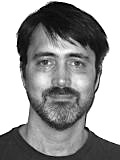GOTO is a vendor independent international software development conference with more that 90 top speaker and 1300 attendees. The conference cover topics such as .Net, Java, Open Source, Agile, Architecture and Design, Web, Cloud, New Languages and Processes
Ulf Wiger, TweetCo-founder and Developer Advocate, Feuerlabs Inc.

Biography: Ulf Wiger
Presentation: TweetConnected Device Development By Contract
Presentation: TweetKnowledge is imperfect - acting on stale, inconsistent or missing data
This talk describes one programmer's journey through what seems like a lifelong battle against poor, incomplete or inconsistent data. The speaker spent his formative years in Decision Support and Disaster Response, trying to serve decision makers with timely and accurate information right when everything is falling apart. Next, he built telephony systems, with special focus on how to recover from particularly nasty errors. Currently, he is building management frameworks for Connected Devices, dealing with flaky communication links, remote debugging and data validation. It always comes down to the quality of the data, especially in distributed systems. Through anecdotes, this talk with describe some of the challenges, and how they can be addressed.
